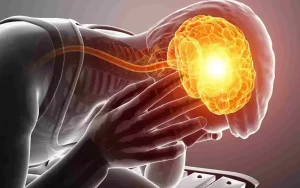The addictive nature of stress becomes apparent in individuals who struggle to relax and constantly seek busyness, seeking the exhilaration of adrenaline. Discover the implications of being addicted to stress.
When we think about addictions, our minds often jump to dependencies on substances or compulsive behaviors such as shopping, sex, or social media. However, it is important to recognize that addiction can also manifest in our relationship with stress. Some individuals crave and rely on continuously elevated levels of adrenaline and cortisol.
For instance, individuals who struggle to disconnect from work or prioritize other aspects of their lives may be addicted to stress. While this characteristic may not align with any specific clinical condition outlined in the Diagnostic and Statistical Manual of Mental Disorders (DSM-V), it is an increasingly common psychological phenomenon. This article explores the concept of stress addiction and its implications.
Frequently, perfectionists find themselves trapped in a cycle of stress that they cannot escape from, making them particularly susceptible to stress addiction.
Addiction to Stress: Understanding the Phenomenon
Stress is a natural and adaptive response in the brain that helps us navigate challenges, solve problems, and address threats. It has played a vital role in our survival as a species. However, when stress becomes chronic and habitual, it can have detrimental effects on our well-being.
A study published in Cellular and Molecular Neurobiology highlights the potential risks of experiencing excessive or prolonged stress, which may contribute to various clinical disorders. This indicates that prolonged stress is not conducive to a healthy lifestyle. Interestingly, in recent years, a new phenomenon has emerged in psychological counseling: stress addiction.
Stress addiction refers to individuals who engage in activities that consistently trigger an overactivation of the sympathetic nervous system. This results in their brains becoming accustomed to a persistent and heightened release of adrenaline, epinephrine, and cortisol. Consequently, their neural reward systems become reinforced, perpetuating the addiction to stress.
Consolidating Addictions: Understanding the Mechanisms
In an article published in Advances in Psychosomatic Medicine, it is suggested that addictions are established through the pleasurable sensations induced by external substances or the release of hormones and neurotransmitters resulting from specific behaviors. This process contributes to the reinforcement and maintenance of addictive patterns.
Indicators of Stress Addiction
Addiction to stress manifests in individuals through detrimental and perilous behaviors. These individuals possess an insatiable urge to constantly challenge their mental and physical capacities. They require their cortisol levels to reach their zenith in order to experience a sense of well-being. The following are key traits of someone who is addicted to stress.
1-Intolerance for Inactivity
Individuals exhibiting this profile are notably unable to engage in restful activities. They perceive idleness, leisure, and relaxation as indicators of incompetence and diminished productivity. Their minds have become accustomed to constant multitasking, worrisome thoughts, and relentless busyness, leaving them unable to tolerate the essential nature of downtime.
2-Excessive Perfectionism
In the case of stress addiction, mere completion of tasks is insufficient; they relentlessly strive for perfection. The challenge lies in the fact that the unattainable goals they set for themselves are never realized. Their fixation on attaining unparalleled levels of productivity and efficiency results in perpetual feelings of frustration and self-perceived inadequacy. Such situations can be profoundly self-destructive.
3-Intense Competitiveness
Individuals addicted to stress often perceive themselves as highly competitive. While this characteristic can lead to remarkable accomplishments, it can also expose them to states of heightened anxiety. There is always a target or a rival with whom they feel compelled to measure themselves. There is always another objective looming on the horizon, an opportunity to prove their worth and abilities.
Unbeknownst to them, their levels of adrenaline and cortisol are in constant activation, propelling them to continuously strive for new heights and showcase their capabilities to others. It comes as no surprise that sustaining such a lifestyle over an extended period is detrimental to their well-being.
4-Work Addiction
Undoubtedly, you are familiar with the term “workaholic” used to describe individuals addicted to work. For them, work becomes their life, shaping their self-image and defining their purpose. Those addicted to stress often fall into this category, as they feel the constant need to be in the work environment, neglecting other aspects of their lives.
5-Engagement in Risky Behaviors
Engaging in risky behaviors is another manifestation of stress addiction. These actions provide temporary surges of adrenaline to the body, offering fleeting moments of euphoria. Examples of such behaviors include reckless driving, substance abuse, or excessive alcohol consumption.
6-Occurrence of Panic Attacks
Chronic and unregulated stress, which dominates the individual, can often lead to the development of other clinical conditions such as panic attacks. Both the brain and the body remain trapped in a state of heightened tension and emotional distress, resulting in significant psychophysical exhaustion.
7-Pronounced Somatic Symptoms
When individuals are unable to effectively manage and regulate their stress levels, they tend to somatize their distress. As a result, chronic stress manifests itself through a range of physical symptoms and health issues. Some common examples include:
Dizziness
Headaches
Insomnia
Fatigue
Muscle pain
Rapid heartbeat (tachycardia)
Digestive disturbances
Weakened immune system
These somatic symptoms serve as clear indicators of the detrimental impact of stress addiction on both the body and overall well-being.
The Consequences of Stress Addiction
While occasional and short-term stress can be helpful, chronic and addictive stress poses significant concerns. While the scientific community does not categorize stress as an addictive substance, it does recognize the risks associated with the development of addictive behaviors related to stress.
The Effects of Stress Addiction
According to research published in EXCLI Journal, maintaining an addiction to stress over an extended period can lead to various detrimental effects on health. These effects include:
- Headaches
- Insomnia
- Hypertension
- Muscle pains
- Memory problems
- Heart problems
- Premature aging
- Changes in eating patterns
- Digestive and intestinal issues
- Increased risk of cerebrovascular infarcts
- Weakened immune system
These health problems highlight the negative impact of chronic stress addiction on the body and emphasize the importance of addressing and managing stress in a healthy manner.
Psychological Consequences
Stress addiction plays a crucial role in the emergence of various mental health issues. According to research published in The Journal of Neuropsychiatry and Clinical Neurosciences, chronic stress contributes to the neurobiological foundations of depression.
The ongoing release of corticotropin and cortisol has a profound impact on the brain, thereby elevating the risk of developing mental health disorders. Additionally, the following psychological problems may arise:
- Social isolation
- Heightened impulsiveness
- Panic disorders
- Anxiety disorders
- Increased vulnerability to addictive behaviors
- Obsessive-compulsive disorder
- Troubled interpersonal relationships
- These psychological consequences emphasize the detrimental impact of stress addiction on mental well-being and underscore the importance of addressing and managing stress effectively.
Overcoming Stress Addiction
Individuals addicted to stress often feel a strong urge to engage in activities that validate their competence and enhance their self-image. Recognizing these patterns is an important step towards recovery. Common profiles include workaholics, highly competitive individuals, and those who experience imposter syndrome.
If you identify with these characteristics, it’s crucial to embark on the journey of recovery. Begin by discussing your situation with trusted individuals in your life. Social support plays a vital role in raising awareness and acknowledging the need for change. In addition, consider the following recommendations:
- Embrace self-care: Prioritize self-care activities such as relaxation, leisure, and hobbies. Allow yourself to rest without feeling guilty, as it is essential for your well-being.
- Set boundaries: Establish clear boundaries between work and personal life. Allocate dedicated time for relaxation, recreation, and spending quality time with loved ones.
- Practice mindfulness: Incorporate mindfulness techniques into your daily routine. This can include meditation, deep breathing exercises, or engaging in activities that promote present-moment awareness.
- Challenge perfectionism: Aim for excellence rather than perfection. Accept that mistakes and setbacks are a natural part of growth and development. Practice self-compassion and celebrate your achievements, no matter how small.
- Seek professional help: Consider consulting with a therapist or counselor who specializes in stress management and addiction. They can provide valuable guidance and support throughout your recovery process.
- Remember, overcoming stress addiction is a journey that requires patience, self-reflection, and a commitment to prioritizing your well-being. By implementing these strategies and seeking the support you need, you can break free from the cycle of stress addiction and lead a healthier, more balanced life.
Enhancing Your Well-Being and Overcoming Stress Addiction
To overcome addiction to stress and improve your overall well-being, consider implementing the following strategies:
- Enhance self-concept and self-esteem: Focus on building a positive self-image and cultivating self-compassion. Challenge negative self-talk and embrace your strengths and achievements.
- Learn stress regulation techniques: Explore various stress management techniques such as deep breathing exercises, mindfulness meditation, and progressive muscle relaxation. These practices can help you regain control over your stress response.
- Engage in physical activities: Participate in sports or activities that require physical exertion. Exercise not only helps reduce stress levels but also promotes overall physical and mental health.
- Cultivate new hobbies: Explore interests and activities beyond work that bring you joy and fulfillment. Engaging in hobbies can provide a sense of balance and help shift your focus away from constant busyness.
- Incorporate relaxation techniques: Integrate breathing exercises, relaxation techniques, and meditation into your daily routine. These practices promote relaxation, calmness, and mental clarity.
- Reorganize your schedule: Establish a balanced schedule that includes dedicated time for work, leisure activities, and rest. Prioritize self-care and ensure you allocate sufficient time for relaxation and rejuvenation.
- Seek support from groups: Connect with support groups or communities of individuals who have experienced similar challenges. Sharing experiences and receiving support from others can be immensely helpful in your recovery journey.
- Promote healthy habits: Take care of your physical health by adopting a nutritious diet, engaging in regular exercise, and eliminating harmful behaviors such as smoking or excessive alcohol consumption.
- Evaluate your environment: Identify any environments or people that perpetuate the need to constantly be busy and overwhelmed. If necessary, make changes to your surroundings, including considering a job change if it contributes to stress addiction.
- Embrace the importance of rest: Challenge the belief that rest is a waste of time. Reformulate your thoughts and beliefs to recognize that rest is crucial for your overall well-being and productivity. Prioritize self-care and dedicate time to relaxation and rejuvenation.
By implementing these strategies and making positive changes in your lifestyle, you can gradually overcome addiction to stress and cultivate a healthier and more balanced approach to life. Remember, seeking professional help from therapists or counselors specialized in stress management can provide additional guidance and support throughout your journey.
Therapeutic Support for Overcoming Stress Addiction
In addition to the self-help strategies mentioned earlier, seeking professional assistance can greatly benefit individuals struggling with stress addiction. Cognitive-behavioral therapy (CBT) is a commonly recommended approach for addressing this issue. This therapy focuses on identifying and modifying unhealthy thought patterns and behaviors, allowing individuals to develop healthier coping mechanisms and engage in more satisfying activities.
A qualified therapist can guide you through the process of understanding the underlying causes of your addiction to stress and help you build skills to manage it effectively. Through CBT sessions, you’ll learn strategies to challenge negative thought patterns, set realistic goals, prioritize self-care, and establish healthier boundaries. The therapist will work with you to develop personalized techniques that can be applied in your daily life to break free from the cycle of stress addiction.
Remember, seeking professional help is not a sign of weakness but a proactive step towards improving your well-being. By investing in therapy, you’re giving yourself the opportunity to create lasting positive changes. Take the necessary time to rest, prioritize self-care, and nurture both your body and mind. Embracing a healthier lifestyle and seeking therapy can contribute to a more balanced and fulfilling life.










